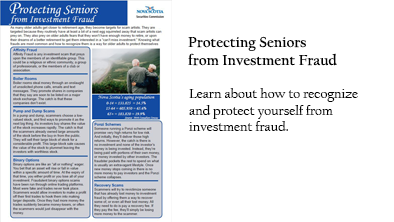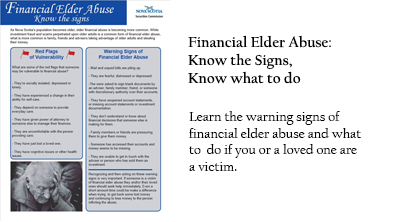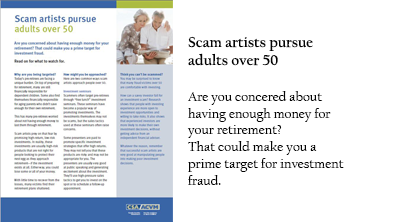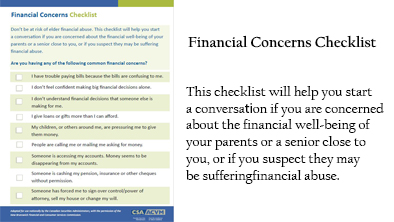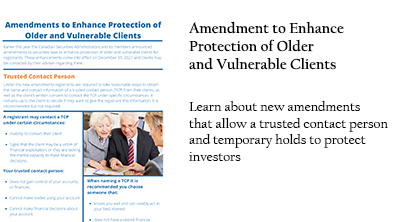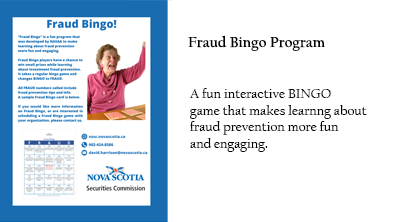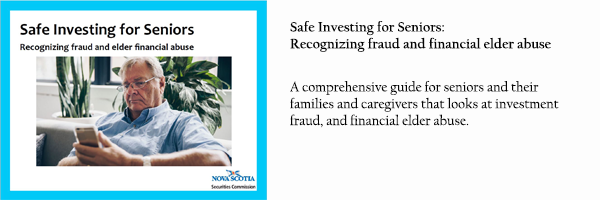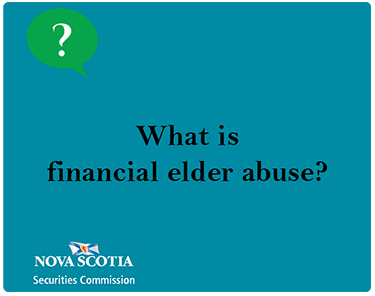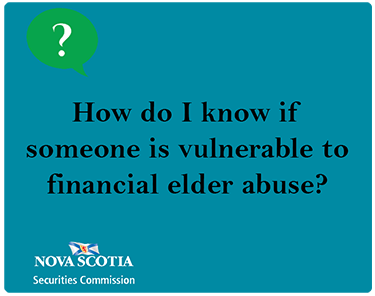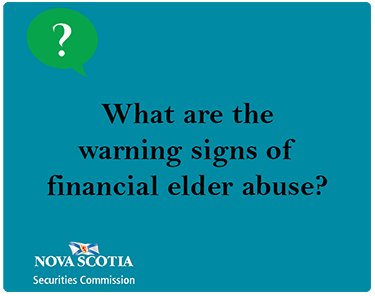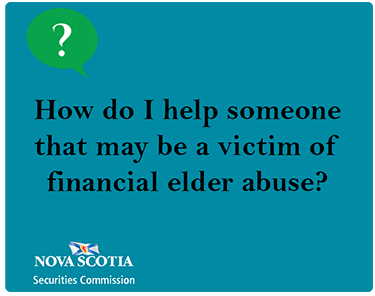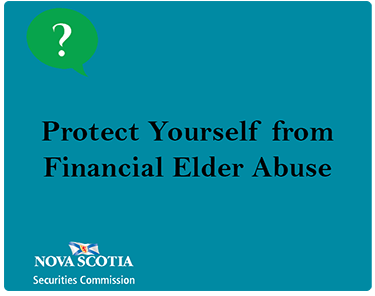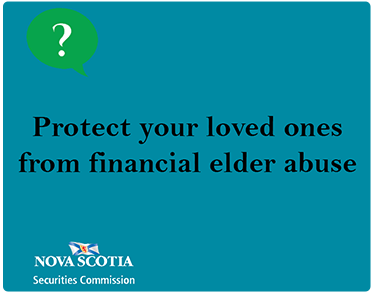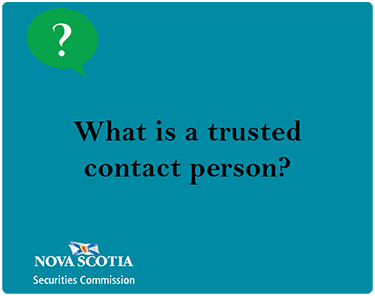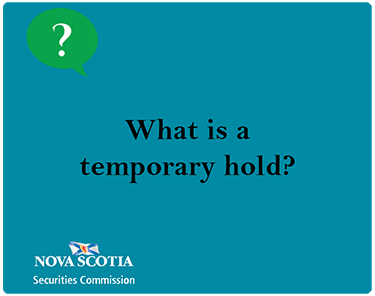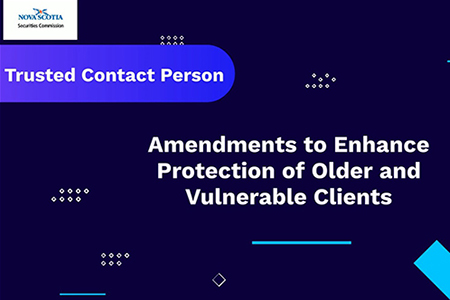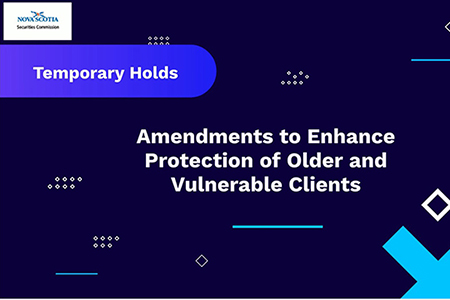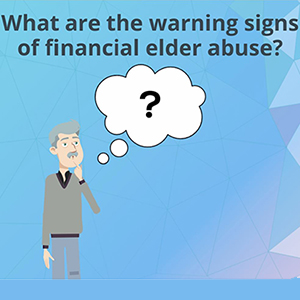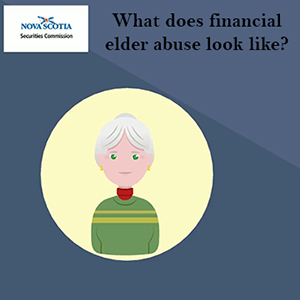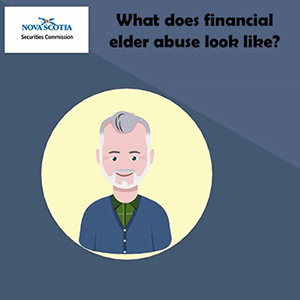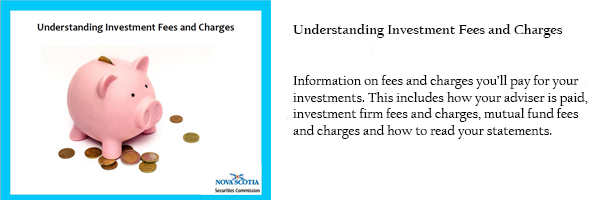As Nova Scotia’s population gets older a large portion of the province is getting closer to retirement. Many are already investing or are thinking about investing to get them there. Whether you’re new to investing or have been investing for years, this page can offer you helpful information to make sure you are an informed investor. An informed investor is a safe investor, avoiding scams, fraud and financial elder abuse. Take the time to learn about investment fraud, financial elder abuse, investment fees, registration, risk and more, to protect yourself, and your money.



What is the trusted contact person provision?
What is the temporary holds provision?

Part One: Are you or a loved one vulnerable to financial elder abuse?
Part Two: What are the warning signs of financial elder abuse?
Part Three: Start the Conversation. Talking about financial elder abuse.

What does financial elder abuse look like? - Part 1
What does financial elder abuse look like? - Part 2
What does financial elder abuse look like? - Part 3

Many people invest in RRSPs or TFSAs for their retirement, or to reach other financial goals. But how many of them know what they are and how they work? Did you know that if you have an RRSP eventually you’re going to need an RRIF or an annuity to receive your money as income?
- Are RRSPs securities?
- What is the difference between RRSP, and TFSA investment accounts?
- What is an RRIF?
- What are annuities?
- What is a LIRA?
- What is a LIF?
- Can I access the funds in a LIRA before retirement?
- What happen to my investments when I die?

If you are an investor then you are paying fees. It may be to an adviser or to the company offering the investment product you are buying. It could be commissions for the purchase or sale of an investment. Do you know how much you paid in fees last year? Do you know what fees you pay at all? Take the time to learn about the types of fees that exist and how to find out if you are paying them.
- How is my adviser paid?
- Can you explain mutual funds fees?
- What are embedded commissions?
- What is a deferred sales charge (DSC)?
- What is a management expense ratio (MER)?
- What are loads?

Did you know that anyone selling or advising on securities in the province of Nova Scotia must be registered with the Nova Scotia Securities Commission? An adviser’s category of registration also determines what investments he or she can offer you. Learn about the different categories and what they mean, and make sure you always check the registration of any adviser you are dealing with.
- What is a registered adviser?
- What is a scholarship plan dealer?
- What is an exempt market dealer?
- What is a mutual fund dealer?
- What is an investment dealer?
- What is a portfolio manager?
- What is an investment fund manager?

All Investments have risk. But the type of risk you are facing can differ depending on what you are investing in. Take the time to learn about risk tolerance and how it affects what investments are suitable for you and learn about how different investments are affected by different types of risk.
- What is risk tolerance?
- Market risk
- Liquidity risk
- Concentration risk
- Credit risk
- Reinvestment risk
- Inflation risk
- Time horizon risk
- Longevity risk
- Foreign investment risk

We know investing can be confusing for a lot of people. What’s the difference between a mutual fund and an ETF? What is diversification and why is it important? How does time horizon effect a senior when investing? Learning some basic investment terms can help make navigating the sometimes complicated world of investing a little easier.

